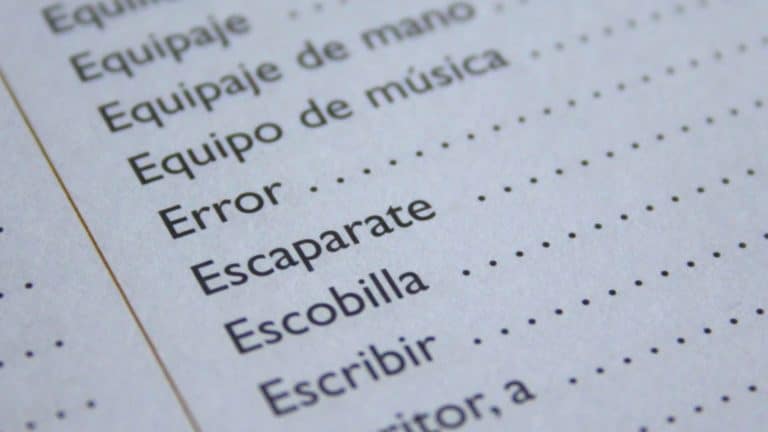In the aftermath of a hurricane, people are often focused on rebuilding and regaining stability. Unfortunately, scammers frequently strike during these vulnerable times, taking advantage of individuals in need. From fake charities to unlicensed contractors, these scams can have devastating effects on both finances and personal identity. This guide explores the common types of post-hurricane scams and offers practical advice to help you protect yourself and your loved ones.
Recognizing Common Scams
Scammers use a variety of tactics to exploit disaster victims. Recognizing these schemes can help you avoid falling into their traps:
- Fake Charities: Scammers create fake charities or pose as representatives of well-known organizations, soliciting donations that never reach those in need. They often use high-pressure tactics to get you to donate immediately, frequently requesting unconventional payment methods like gift cards or wire transfers.
- Unlicensed Contractors: You may be approached by individuals offering repair services, claiming they can fix your property quickly and cheaply. Many of these “contractors” are unlicensed and uninsured. Some may take your money upfront and disappear without doing any work.
- Government Impersonators: Scammers may pose as FEMA or other recovery agency representatives, asking for personal information under the guise of helping you access aid. These impostors often seek details like your Social Security number or bank account information.
Steps to Avoid Post-Hurricane Scams
Being aware of these scams is the first step to protecting yourself. Here are some essential steps:
- Verify Charities and Organizations: Before donating, research the organization using platforms like Charity Navigator or the Better Business Bureau Wise Giving Alliance. Check that the charity is registered with the IRS to confirm it is legitimate and that your donation will be tax-deductible.
- Confirm Contractor Credentials: Before hiring anyone, ask for proof of licensing and insurance. Insist on a written contract that outlines the scope of work and costs. Avoid paying large amounts upfront, and be wary of unsolicited offers for repair services.
- Protect Personal Data: Limit the sharing of personal information and verify the identity of anyone claiming to represent FEMA or other disaster relief organizations. Always ask for official identification and consider reaching out to the agency directly to confirm their identity.
How to Safeguard Your Personal Data
In the wake of a disaster, your personal data can be especially vulnerable to exploitation. Here’s how to protect yourself:
- Limit Information Sharing: Only share personal details with verified contacts. Be cautious about providing information to anyone who contacts you unsolicited.
- Monitor Financial Accounts: Regularly check your bank statements and credit card transactions for any signs of unauthorized activity. Report any unusual transactions immediately.
- Consider a Credit Freeze: Placing a credit freeze with the major credit bureaus (Equifax, Experian, and TransUnion) can prevent new accounts from being opened in your name. This can help prevent identity theft even if some of your personal information has been compromised.
- Request Identification from Officials: Legitimate representatives from organizations like FEMA will have proper identification and will not hesitate to provide it. Always verify their credentials before sharing any personal information.
Avoiding High-Pressure Tactics
Scammers thrive on urgency, often pressuring individuals to make quick decisions. Here’s how to stay in control:
- Take Your Time: Don’t feel pressured to make immediate decisions. Scammers often create a false sense of urgency to rush you into making commitments. Take your time to evaluate any offers and make sure you understand all the details before agreeing to anything.
- Get Multiple Estimates: Before hiring a contractor, get at least three written estimates. This will give you a better sense of fair pricing and help you avoid potential scams.
- Report Aggressive Sales Practices: If someone uses high-pressure tactics, report them to your state attorney general. Legitimate contractors won’t pressure you into signing contracts or making payments on the spot.
Reporting Suspicious Activity
If you encounter suspicious behavior, it’s essential to report it to help prevent others from becoming victims. Here’s what you can do:
- Contact Local Authorities: Report any suspicious behavior to your local police department, especially if someone is soliciting donations or offering services without proper identification.
- Use the Disaster Fraud Hotline: Call the National Center for Disaster Fraud’s hotline at 1-866-720-5721 to report scams or fraudulent activity related to disaster recovery efforts.
- Verify FEMA Representatives: If someone claims to be from FEMA, ask for official identification and call the FEMA Helpline at 1-800-621-3362 to confirm their identity.
- Stay Informed: Follow local news and government updates to stay aware of current scams. Scammers often change tactics, so staying informed can help you avoid the latest schemes.
Staying Informed About Emerging Scams
Scammers often change their tactics, especially following major disasters. Staying informed is one of the most effective ways to protect yourself:
- Sign Up for Alerts: FEMA and local emergency management offices offer alerts about potential scams and updates on recovery efforts. Signing up for these notifications can help you stay aware of current threats.
- Follow Official Social Media Accounts: FEMA and other organizations frequently post updates on platforms like X (formerly Twitter) and LinkedIn, providing timely information on scams and fraud prevention tips.
- Verify Information: FEMA maintains a rumor control page that clarifies misinformation and provides accurate information about their activities. Checking these resources can help you avoid being misled by fraudulent information.
Resources for Fraud Victims
If you believe you have been targeted by a scam, several resources can offer support and guidance:
- National Center for Disaster Fraud: Report fraud by calling 1-866-720-5721 or visiting their website at justice.gov/disaster-fraud.
- Federal Trade Commission (FTC): The FTC provides resources on identity theft recovery at identitytheft.gov, which includes guides on reporting scams and protecting your personal information.
- Local Law Enforcement: If you suspect fraud, report it to your local police department. They can investigate and take appropriate action to protect the community.
- Better Business Bureau (BBB): The BBB allows you to file complaints against businesses and provides information on reputable companies in your area.
Final Thoughts
After a hurricane, the road to recovery can be challenging, and scammers can make the process harder. By remaining vigilant, verifying organizations, protecting your personal information, and reporting suspicious activities, you can safeguard yourself from fraud. Awareness and proactive steps are your best defense against these threats. While scams are prevalent in the wake of disasters, staying informed and cautious can help protect your finances and your identity during this vulnerable time.






